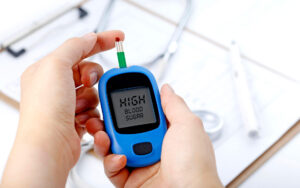Manic depression, formerly known as bipolar disorder is a mental health illness that results in sharp mood swings, including emotional highs (mania or hypomania), and lows (depression). When you experience depression, you could feel melancholy or hopeless and stop enjoying or being interested in most activities.
You might experience mania or hypomania (a less severe form of mania), which can make you feel euphoric, energized, or excessively irritable. The ability to think clearly, energy levels, activities, judgment, and behavior can all be impacted by these mood changes. Mood swing episodes can happen infrequently or repeatedly each year. While the majority of people will have some emotional symptoms in between bouts, some people might not.
What treats bipolar disorder?
Mood-stabilizing drugs are generally required to treat manic or hypomanic episodes. Lithium, valproic acid, divalproex sodium, carbamazepine, and lamotrigine are a few examples of mood stabilizers. A psychiatrist (a medical professional who specializes in the diagnosis and treatment of mental health diseases) who is experienced in treating bipolar disorder and associated illnesses is the ideal person to direct treatment. A psychologist, social worker, and psychiatric nurse could be on your therapy team. Bipolar disorder is a chronic illness. The goal of treatment is to control symptoms. The course of treatment could include Medications. You'll frequently need to start taking drugs immediately away to stabilize your moods. Continued treatment: continued therapy Even when you feel better, bipolar disorder needs to be treated with medication for the rest of your life. People who forego maintenance therapy run the danger of experiencing a relapse of their symptoms or of having mild mood swings develop
into major depression or mania.
How do bipolar meds work?
They function by influencing the neurotransmitters in the brain. A mood stabilizer must also be
used by a person taking antidepressants to assist manage their bipolar disorder in order to
lower their chance of developing manic. One drug, Symbyax, combines the antidepressant
fluoxetine with the antipsychotic olanzapine.
Is bipolar a disability in Canada?
Is bipolar more serious than depression A psychiatrist (a medical professional who specializes in the diagnosis and treatment of mental health diseases) who is experienced in treating bipolar disorder and associated illnesses is the
ideal person to direct treatment. A psychologist, social worker, and psychiatric nurse could be
on your therapy team. A lifelong condition, bipolar disorder. Symptom management is the focus of treatment.
Depending on your requirements, treatment can involve Medicines. You'll frequently need to
begin taking drugs to stabilize your moods immediately away.
Every person likes to live a healthy life. Likewise, nobody likes to get sick frequently. Therefore
when a person gets sick, he/she should take some medicines to bring some relief. A pharmacy is
where we get the necessary medicines to cure our sickness. To get cures for your sickness, a
person must visit a qualified doctor and the doctor will prescribe to get necessary medicines from
the pharmacy. Wellness Pharmacy Pharmacy gives Wellness advice to fitness enthusiasts for
people in Calgary. We provide an array of pharmacy services for Calgary citizens which includes
vaccinations, and prescribing.










